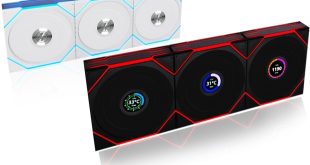Unigine provides an interesting way to test hardware. It can be easily adapted to various projects due to its elaborated software design and flexible toolset. A lot of their customers claim that they have never seen such extremely-effective code, which is so easy to understand.
Heaven Benchmark is a DirectX 11 GPU benchmark based on advanced Unigine engine from Unigine Corp. It reveals the enchanting magic of floating islands with a tiny village hidden in the cloudy skies. Interactive mode provides emerging experience of exploring the intricate world of steampunk.
Efficient and well-architected framework makes Unigine highly scalable:
- Multiple API (DirectX 9 / DirectX 10 / DirectX 11 / OpenGL) render
- Cross-platform: MS Windows (XP, Vista, Windows 7) / Linux
- Full support of 32bit and 64bit systems
- Multicore CPU support
- Little / big endian support (ready for game consoles)
- Powerful C++ API
- Comprehensive performance profiling system
- Flexible XML-based data structures
We use the following settings: 1920×1080 resolution. Anti Aliasing off. Anisotrophy 4, Tessellation normal. Shaders High. Stereo 3D disabled. API: Direct X 11.
The ASUS GTX680 is significantly faster than the reference clocked HD7970, but it falls a couple of frames per second behind the class leading MSI R7970 Lightning.
 KitGuru KitGuru.net – Tech News | Hardware News | Hardware Reviews | IOS | Mobile | Gaming | Graphics Cards
KitGuru KitGuru.net – Tech News | Hardware News | Hardware Reviews | IOS | Mobile | Gaming | Graphics Cards





Price isn’t bad considering the performance. Small audience, but the bragging rights alone mean it is important.
Nice, good power consumption too, which is something they always struggled with, Like Intel currently who can’t compete in mobile space.
bad samples? tskkk. worth the wait, thanks Z.
MSI R7970 lightning is a great card, well priced too. a lot of the reference cooled cards were £500 when they were released.
I was looking to do an upgrade to this but the price and the fact I need a mobo upgrade (actually whole system) as well pulled me away. I would of done it if I wasn’t heading to college next year and I’m going to get a laptop.
Thanks for that review. Big Green just gave AMD a slap in the face with lower prices and more performance. I can’t wait to get my hands on one of these beautiful cards. It will be really interesting to see what the manufacturers come out with for non-reference cards.